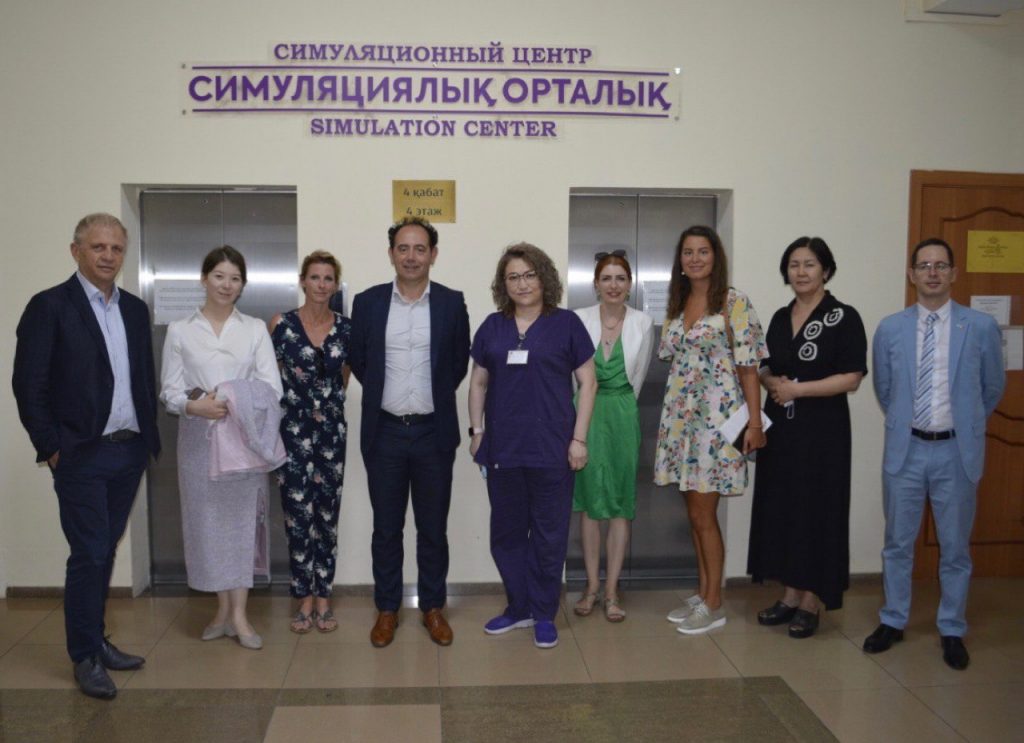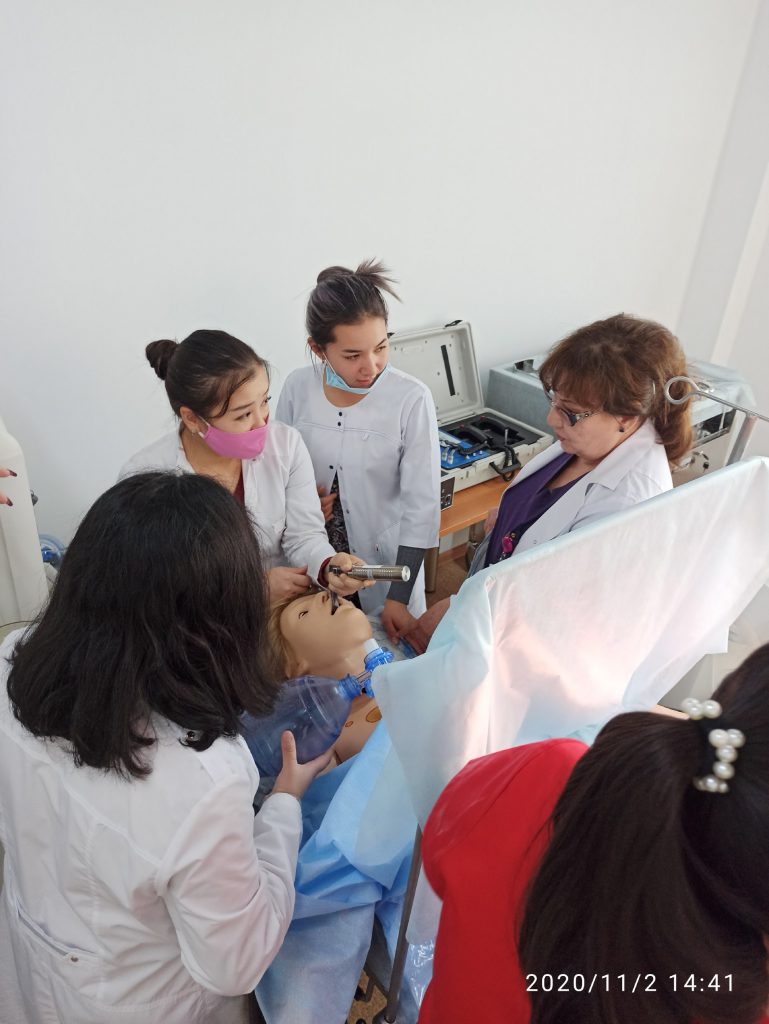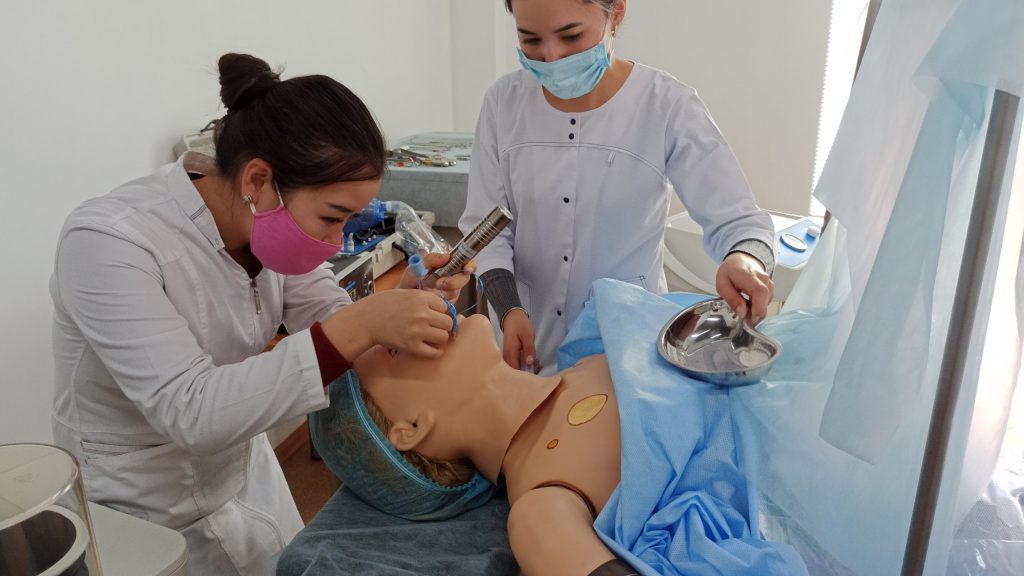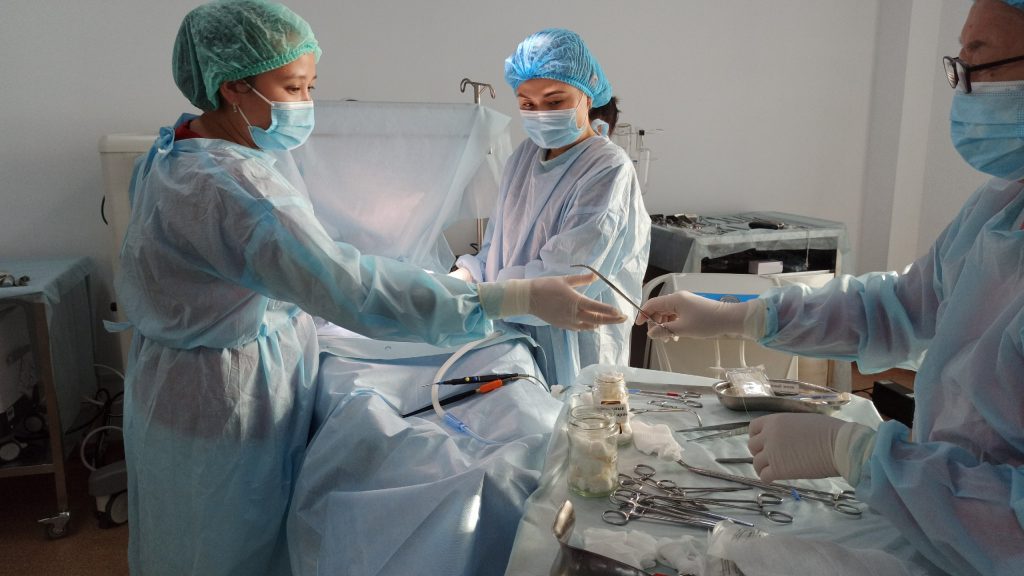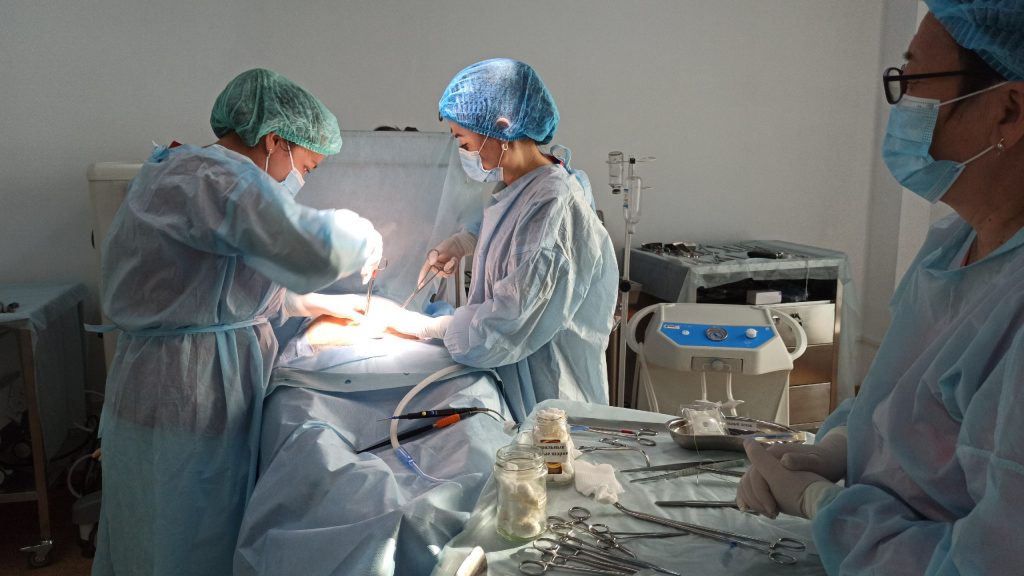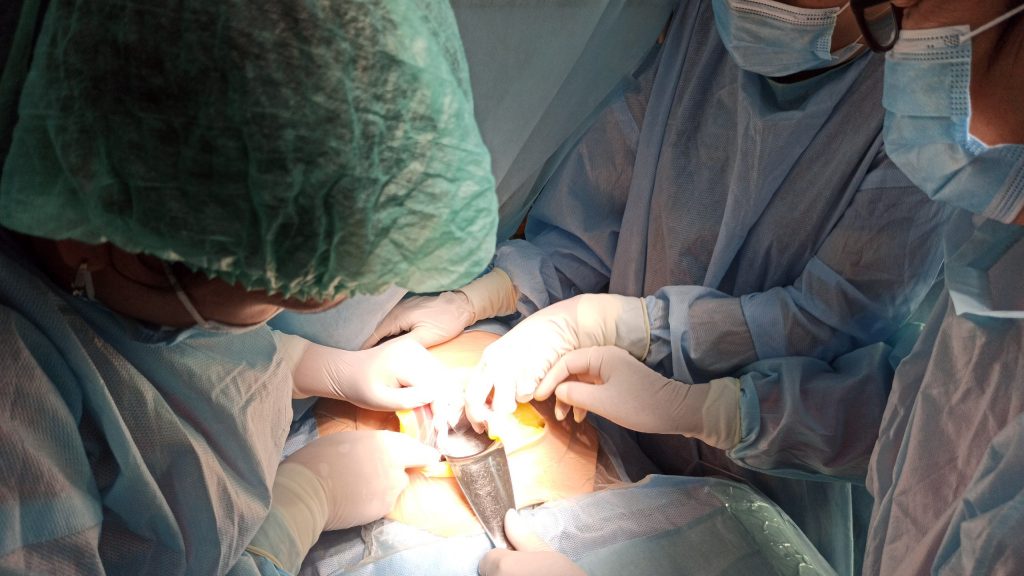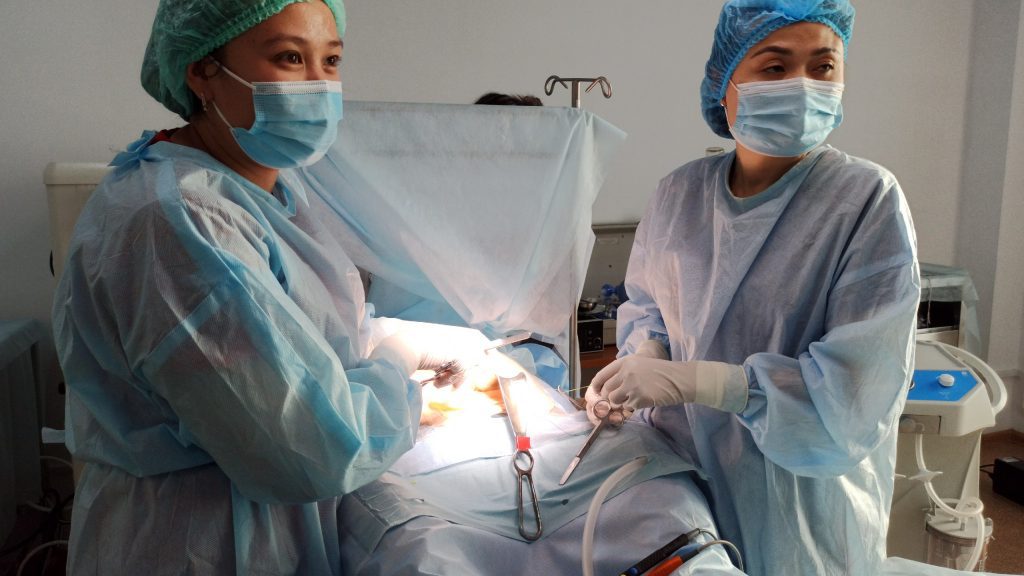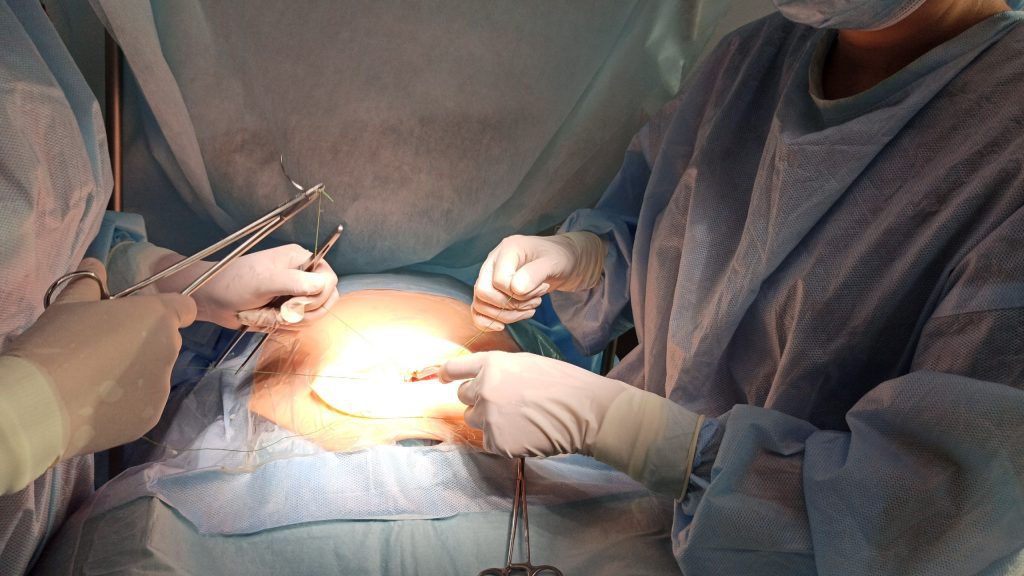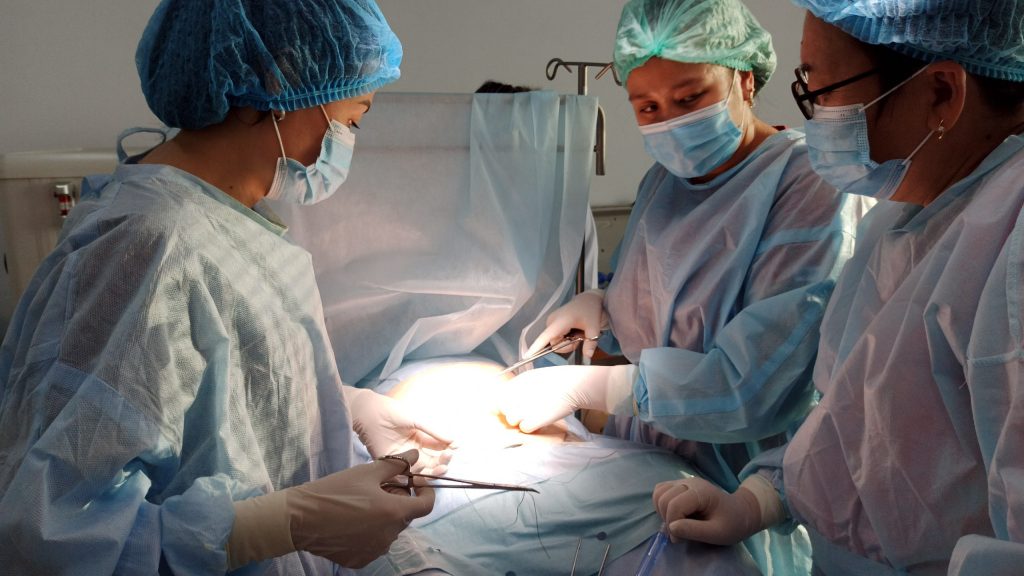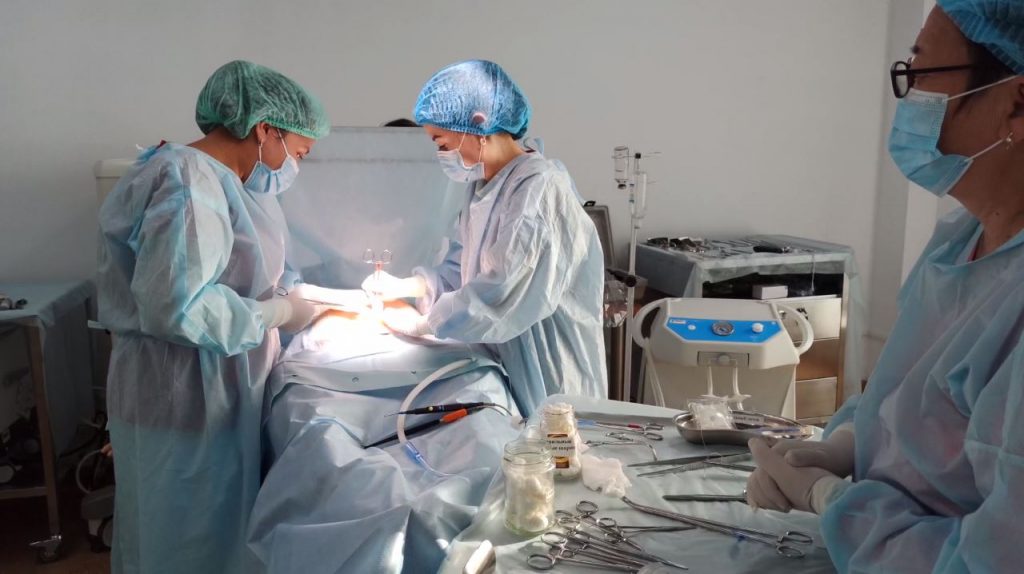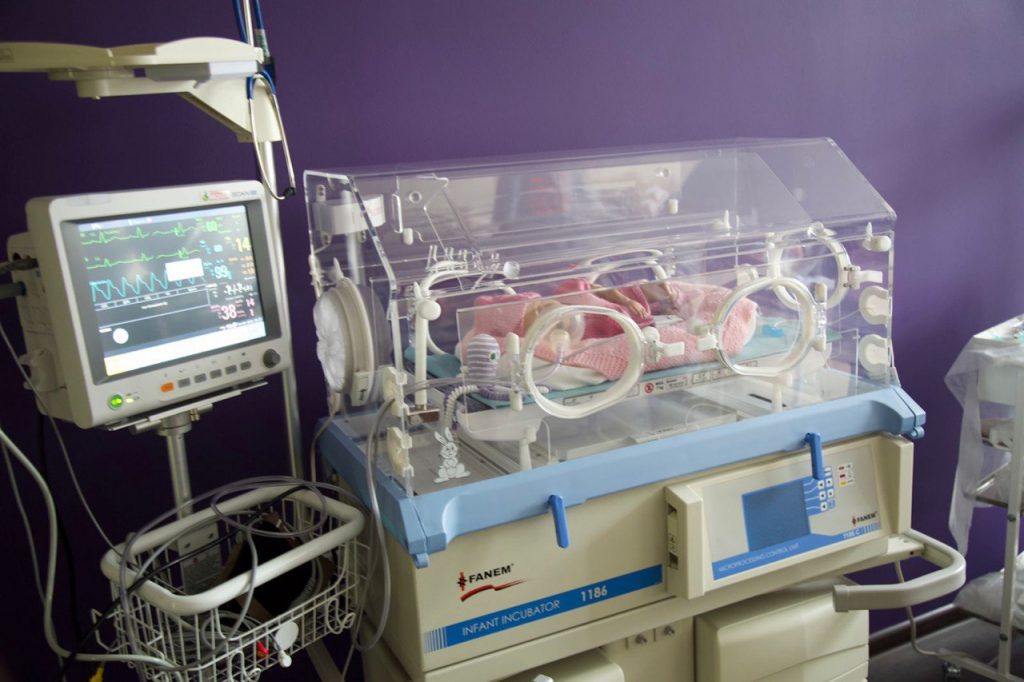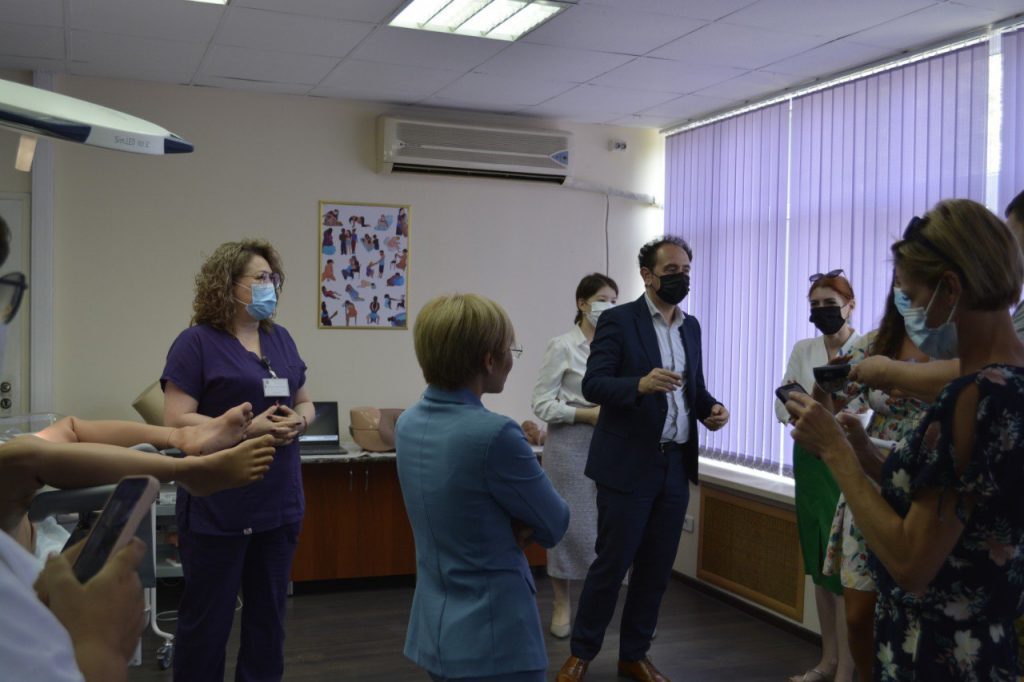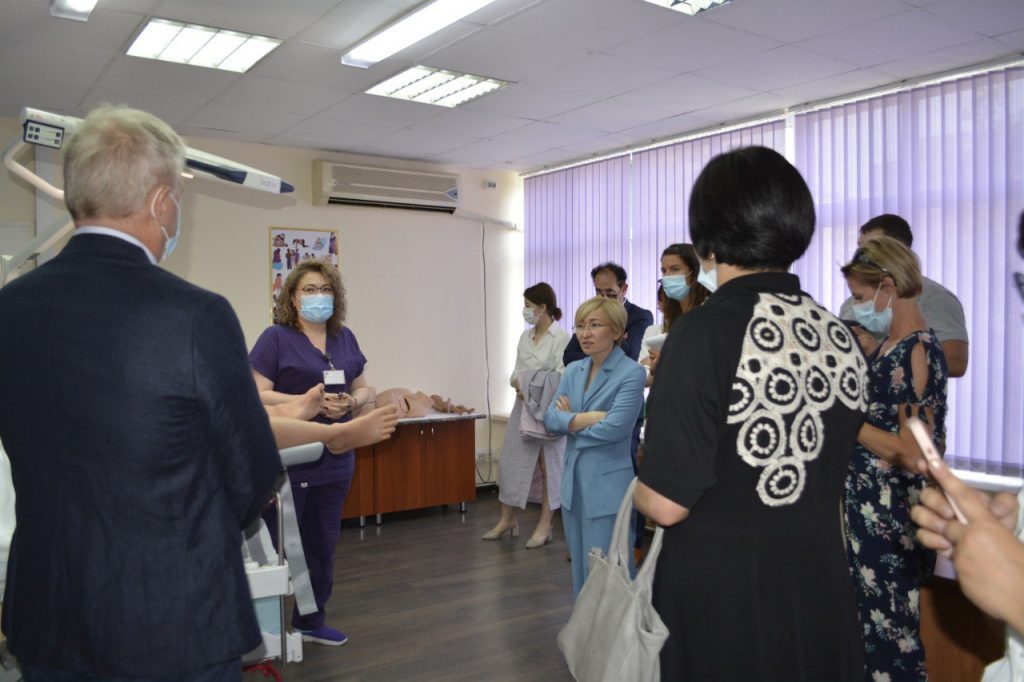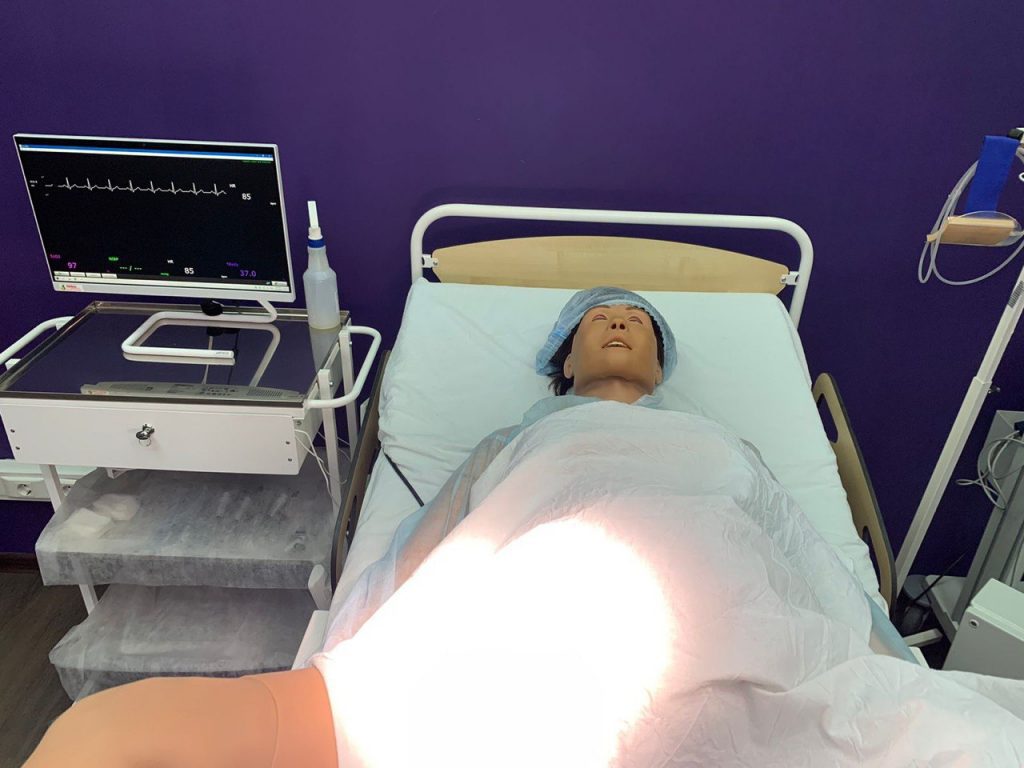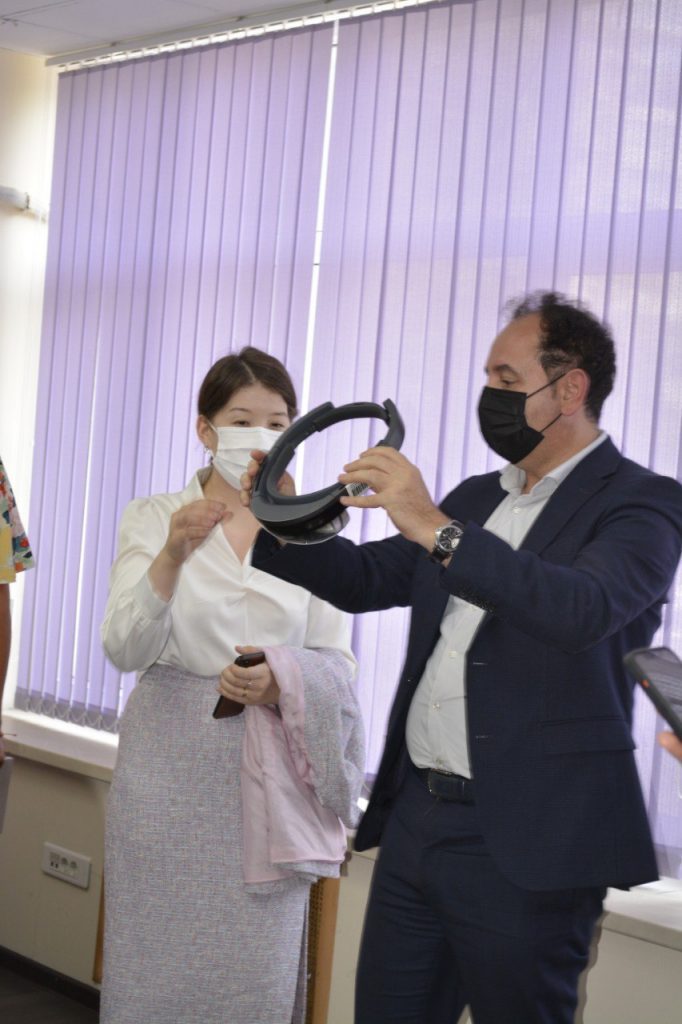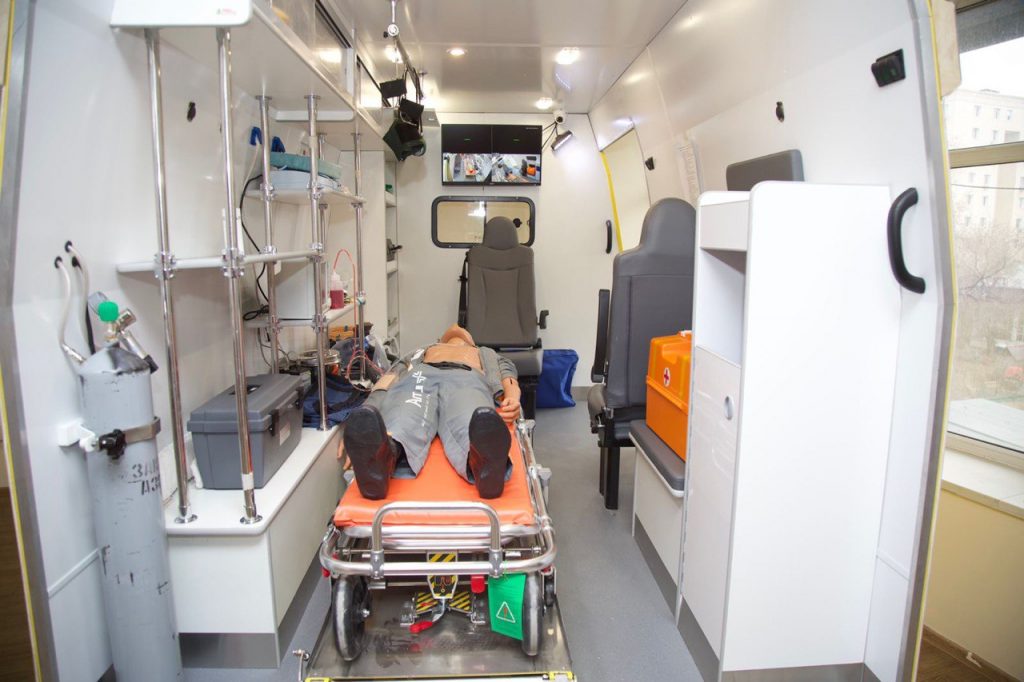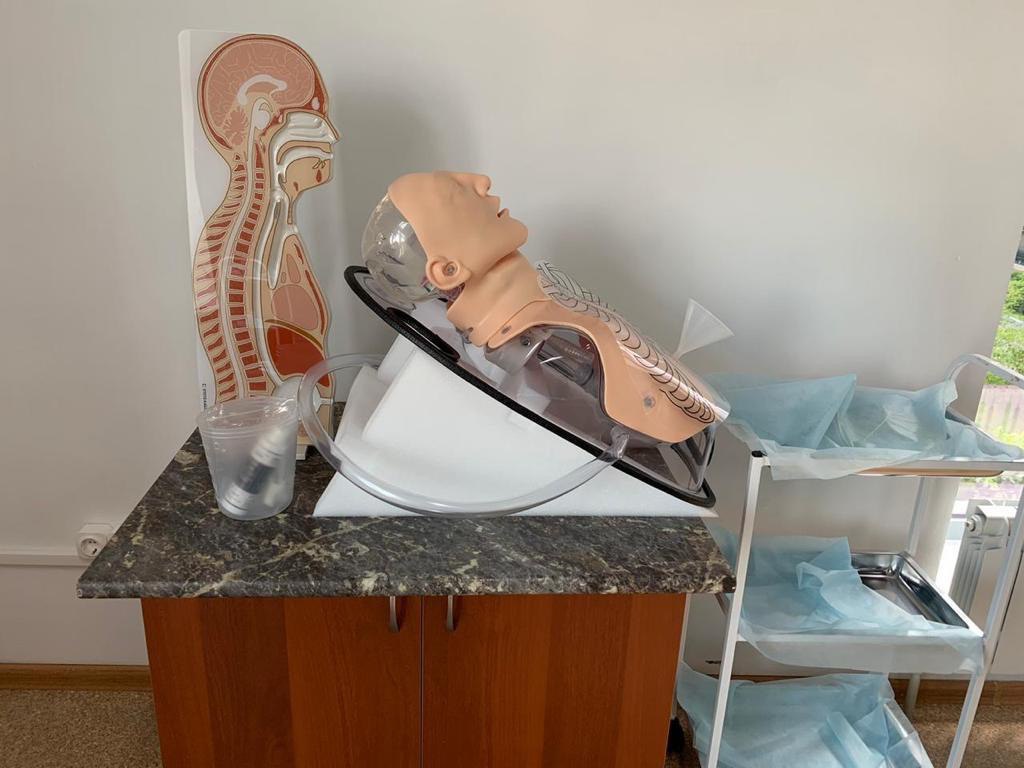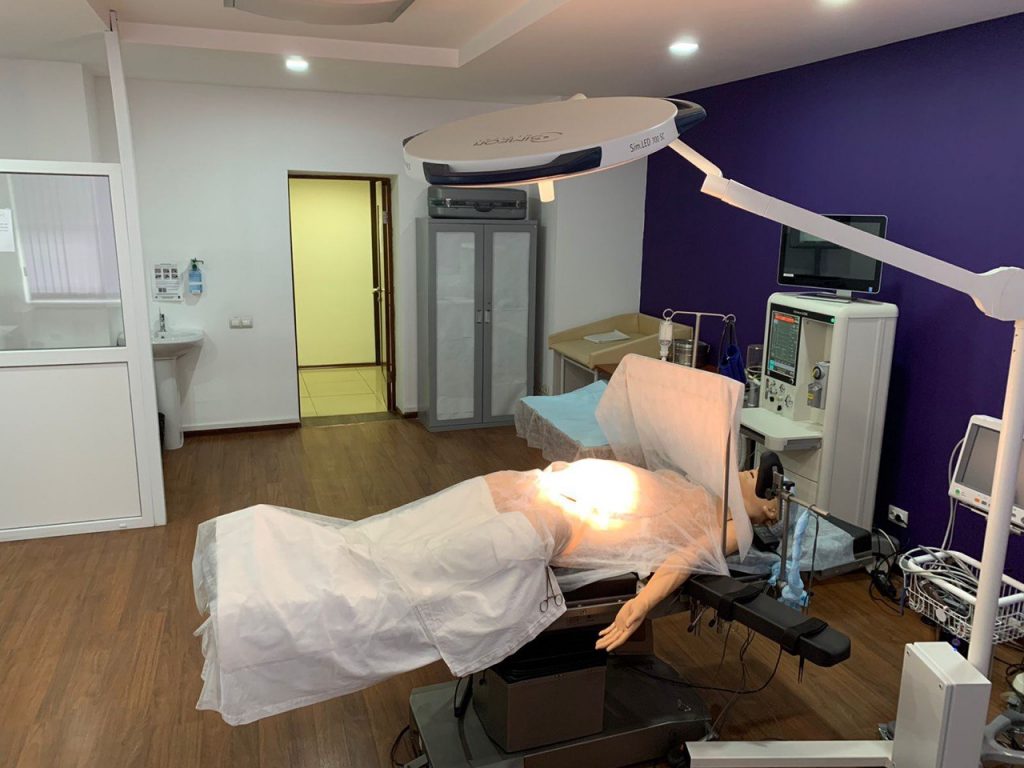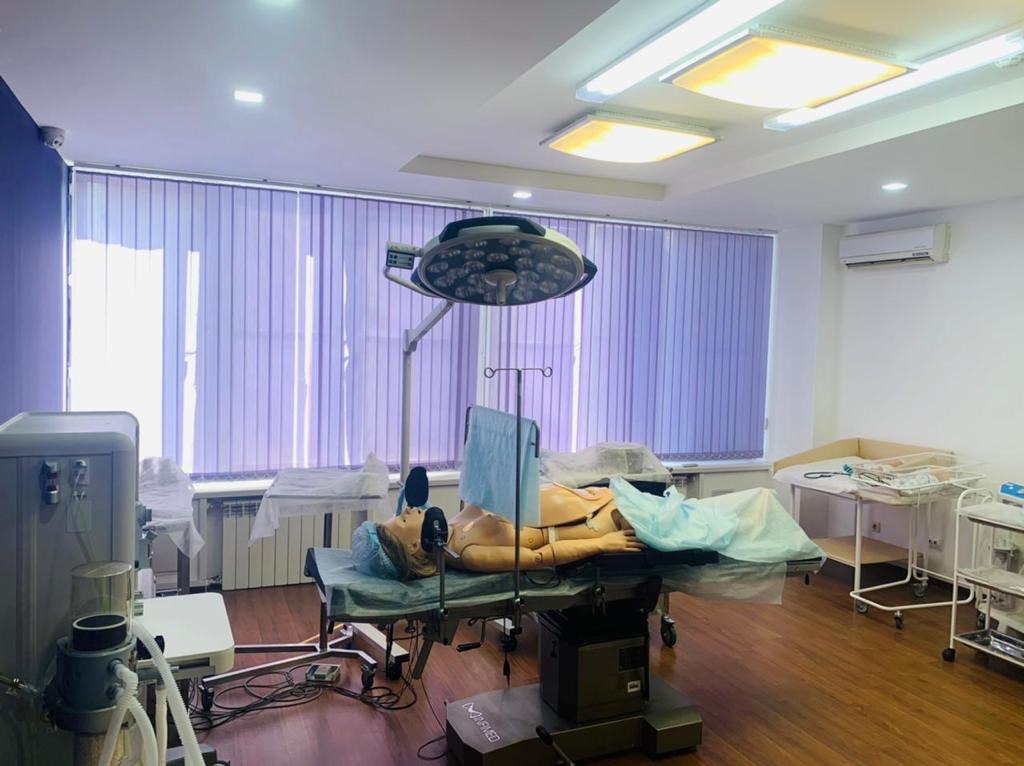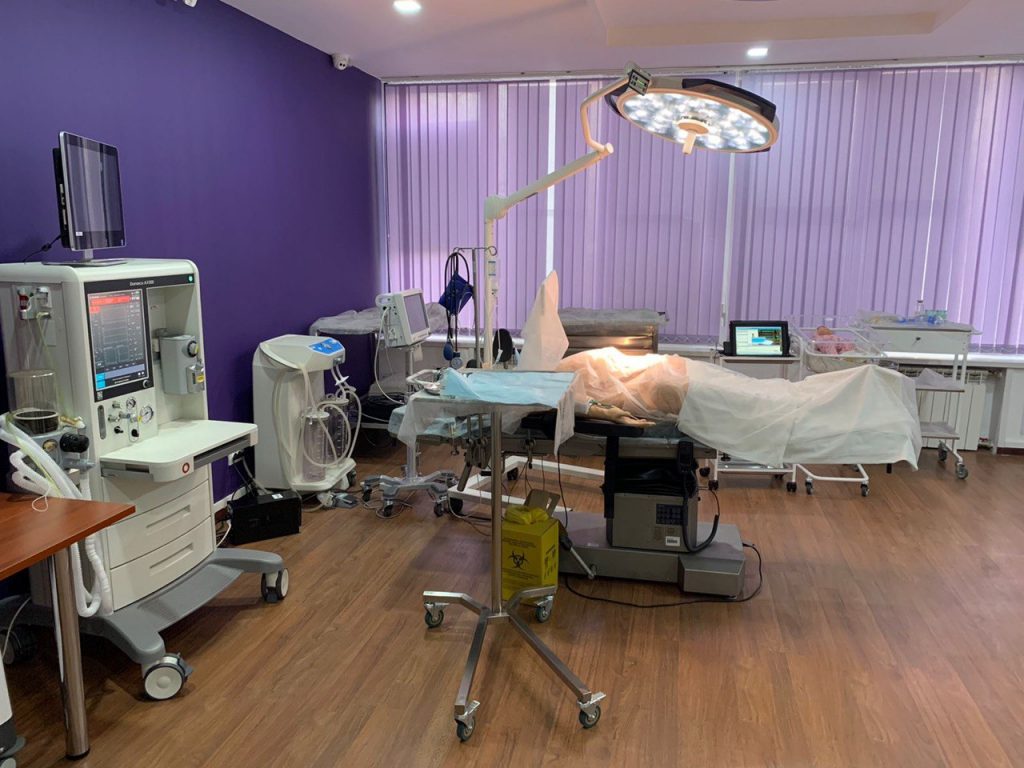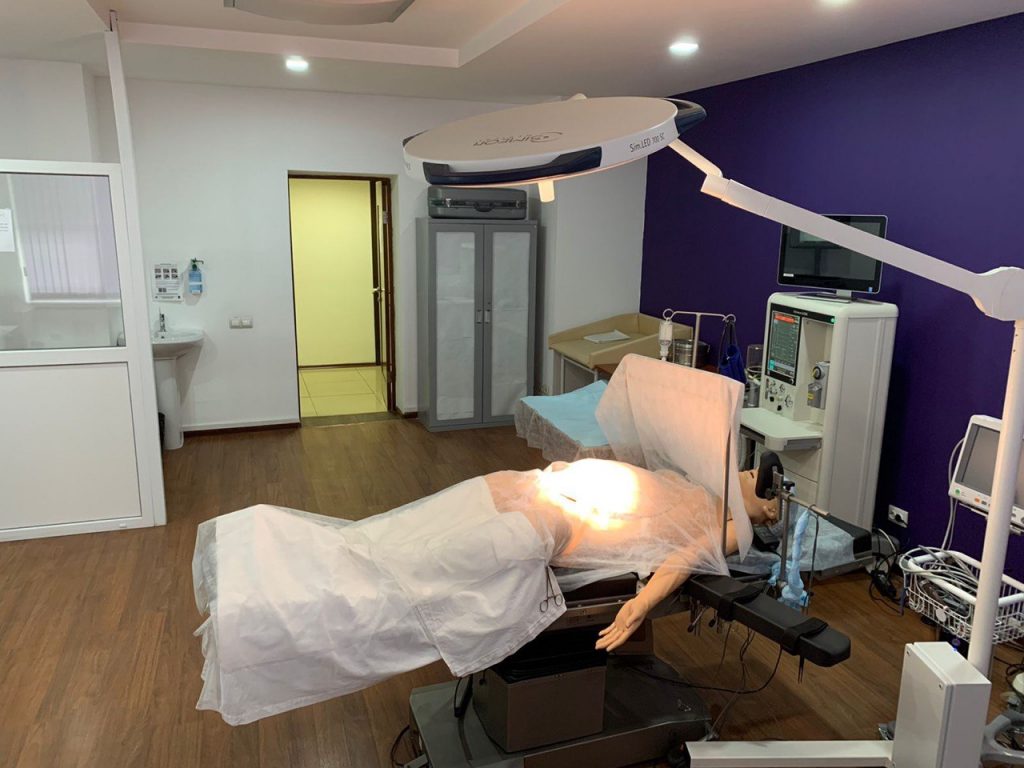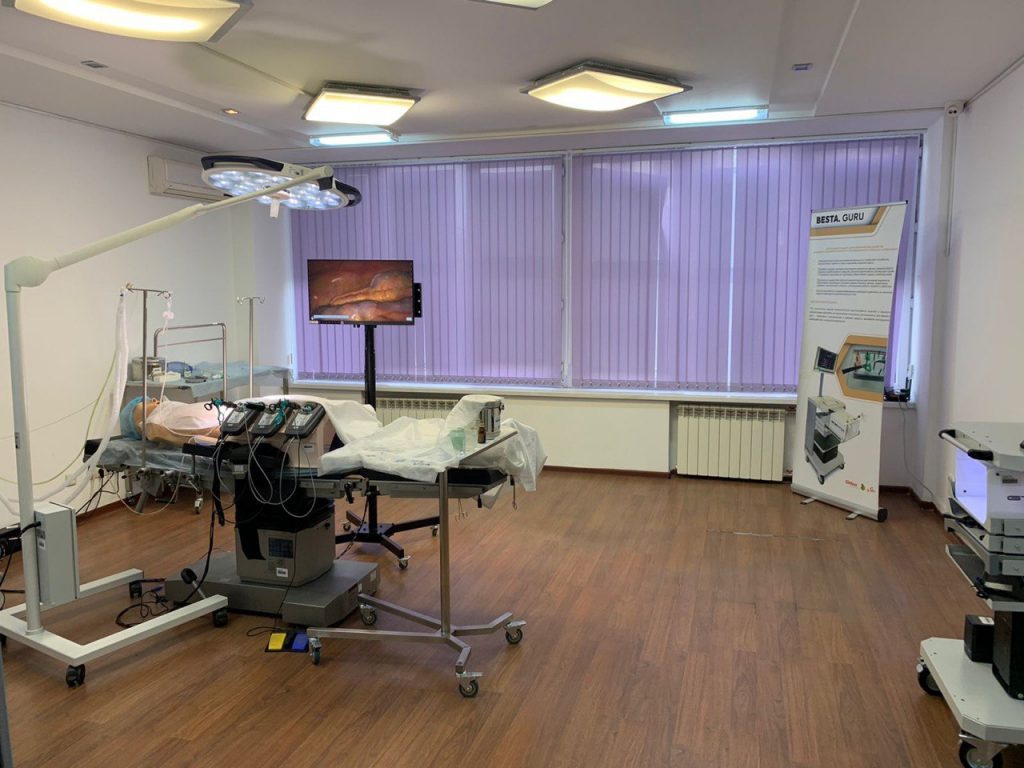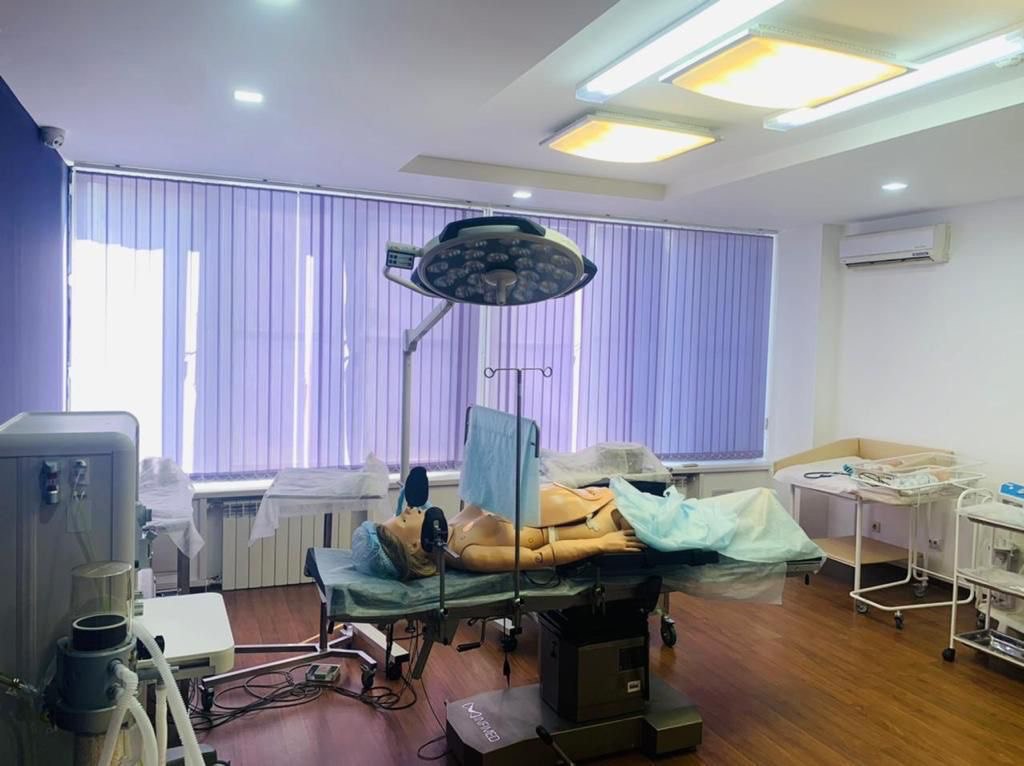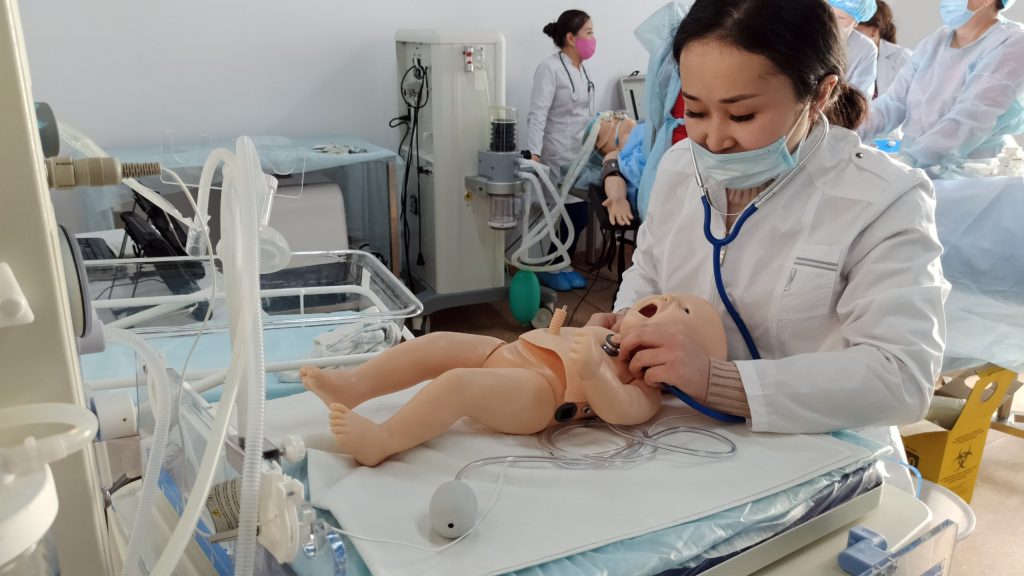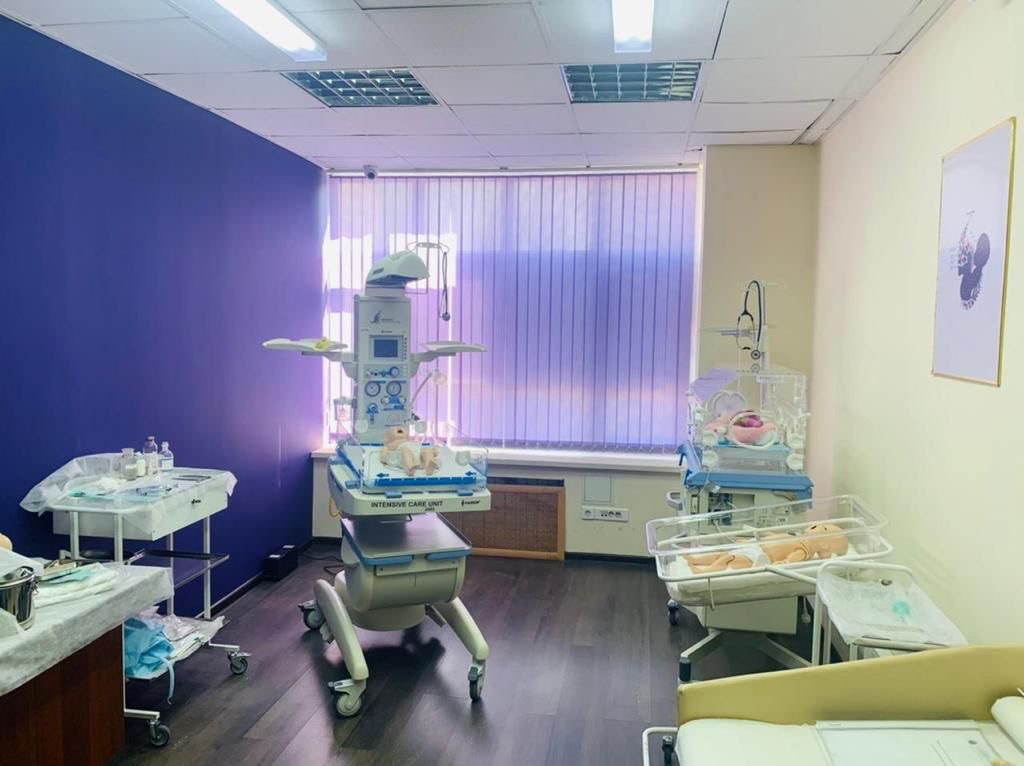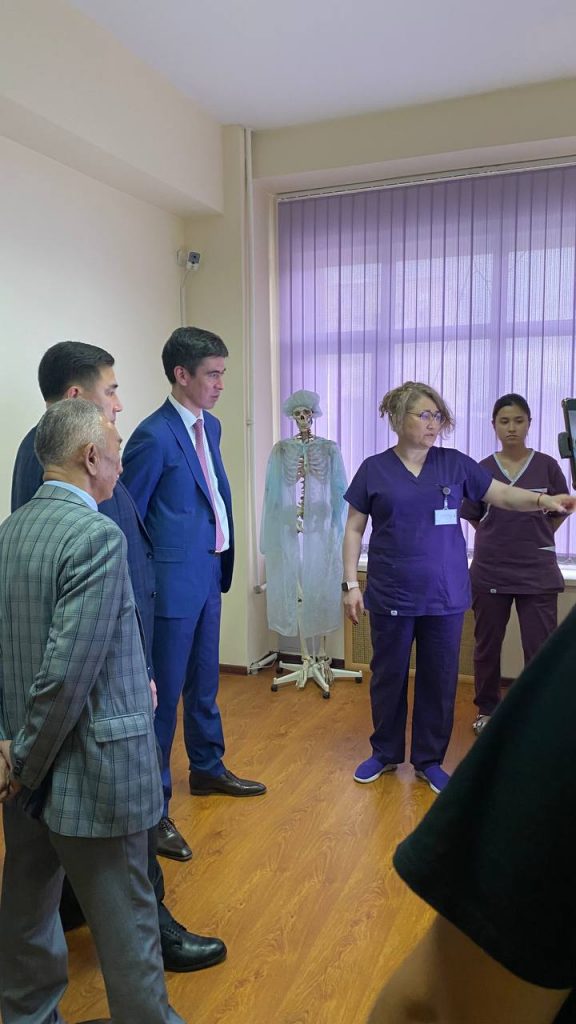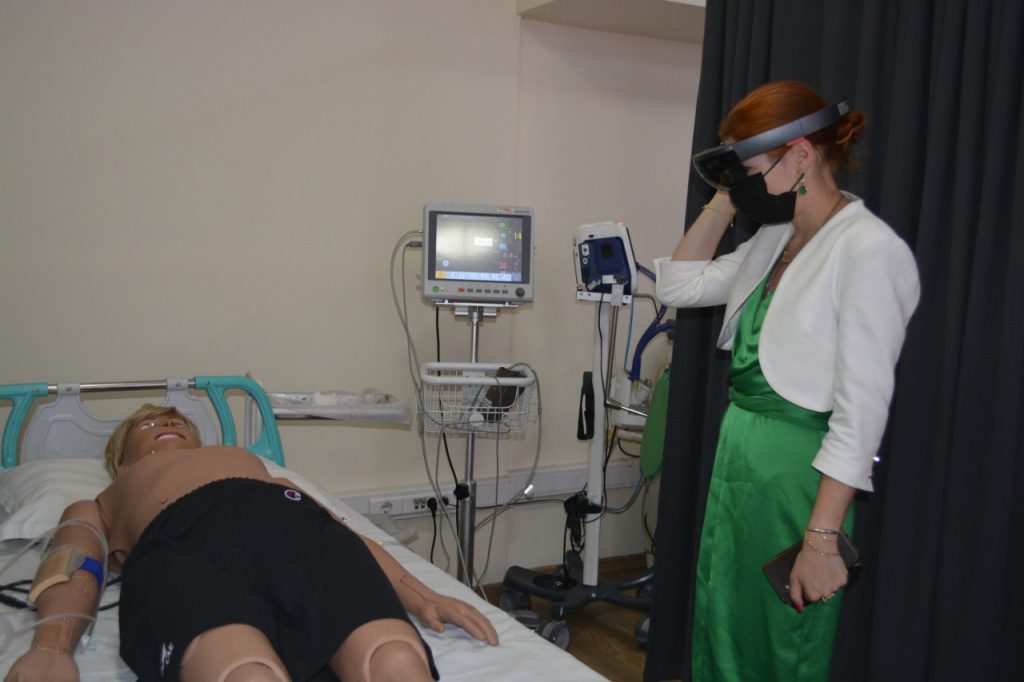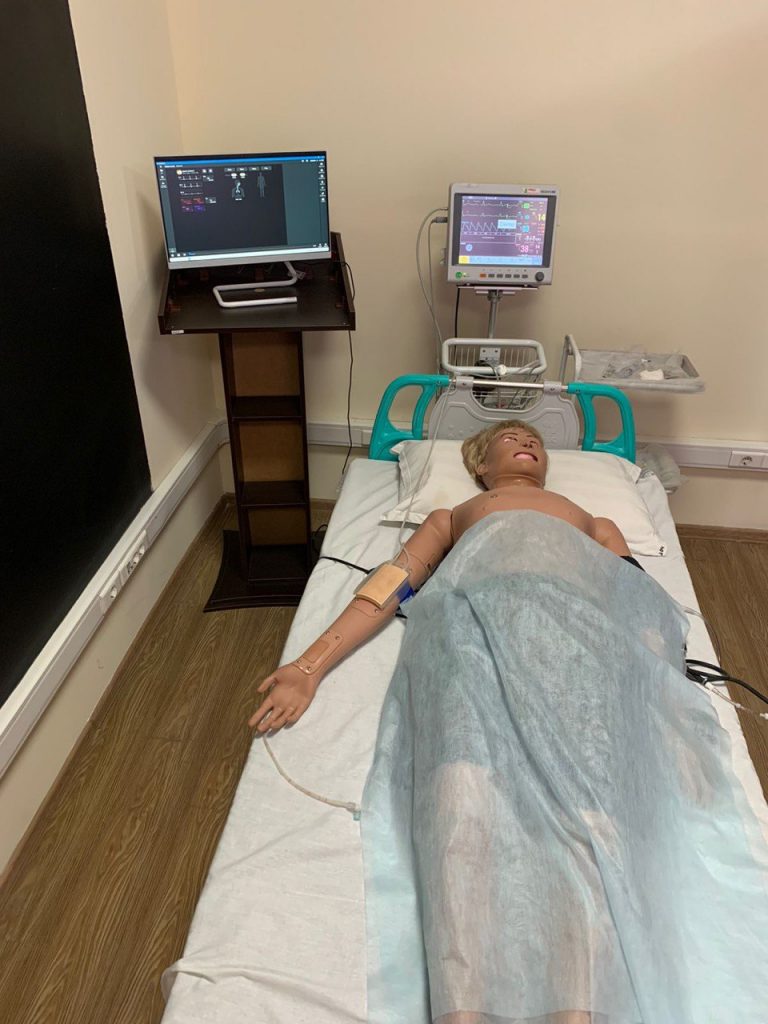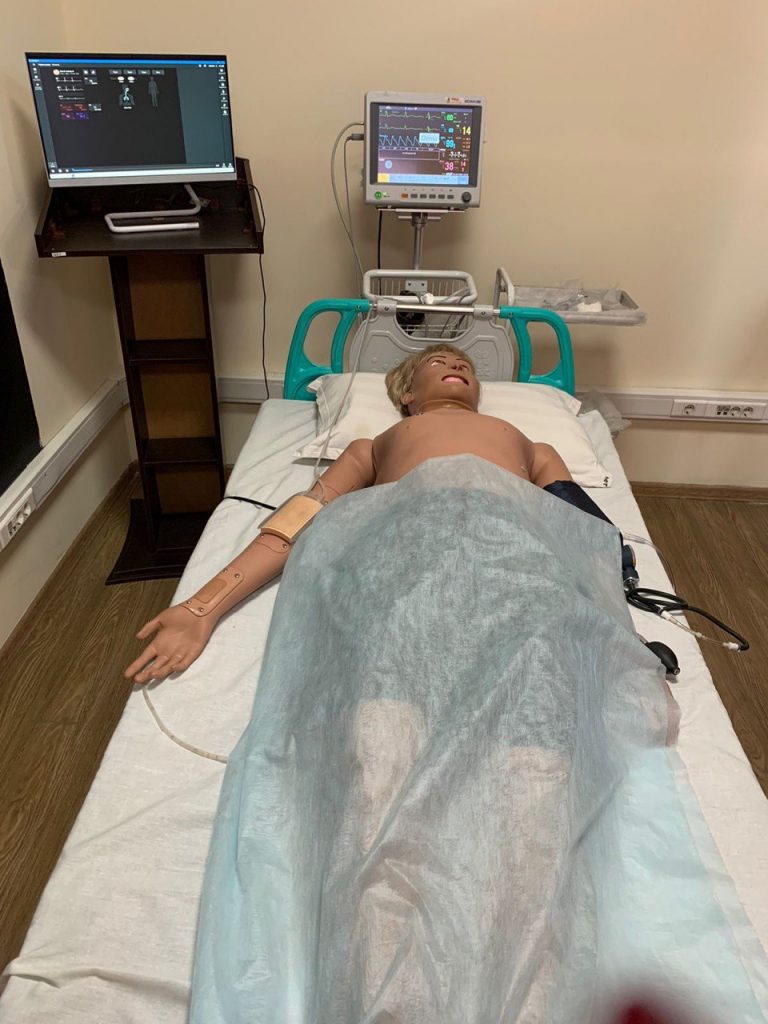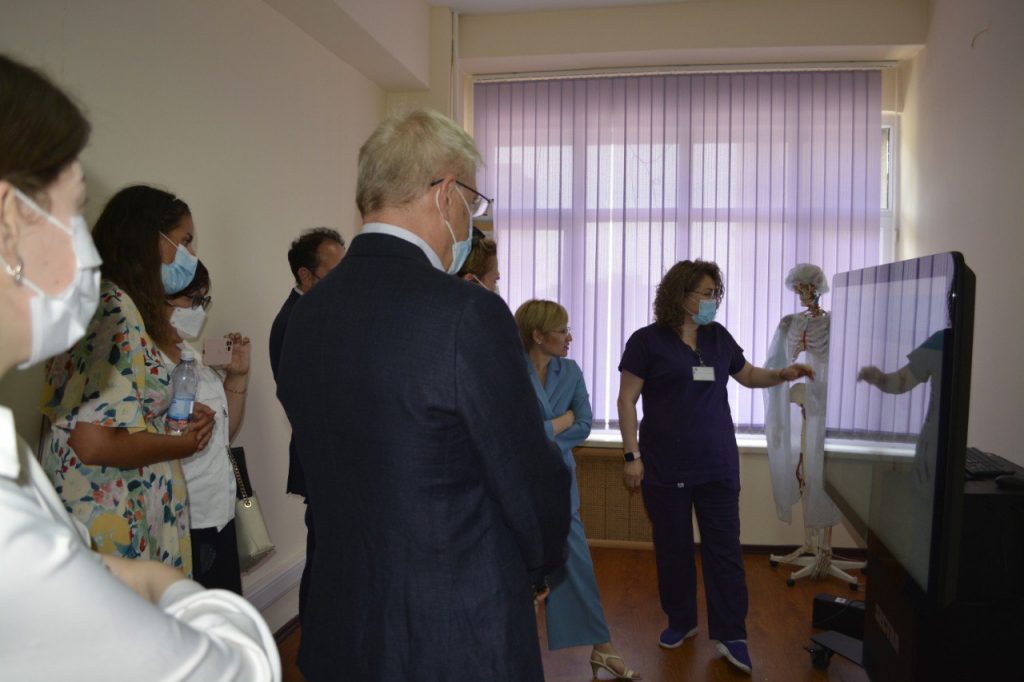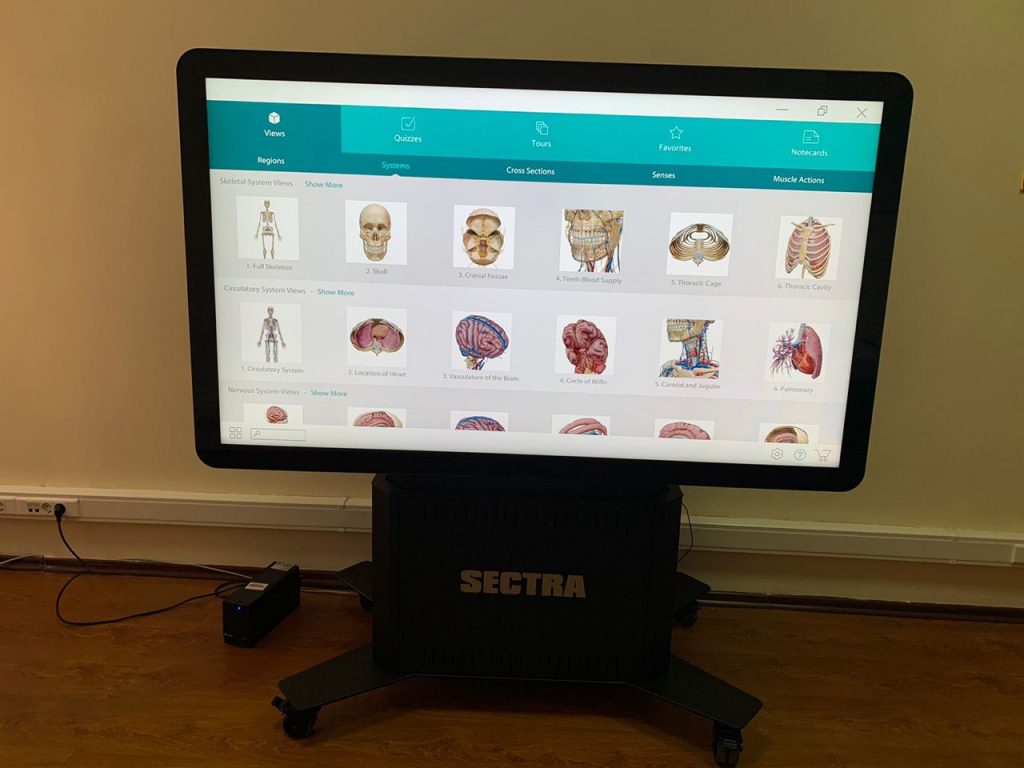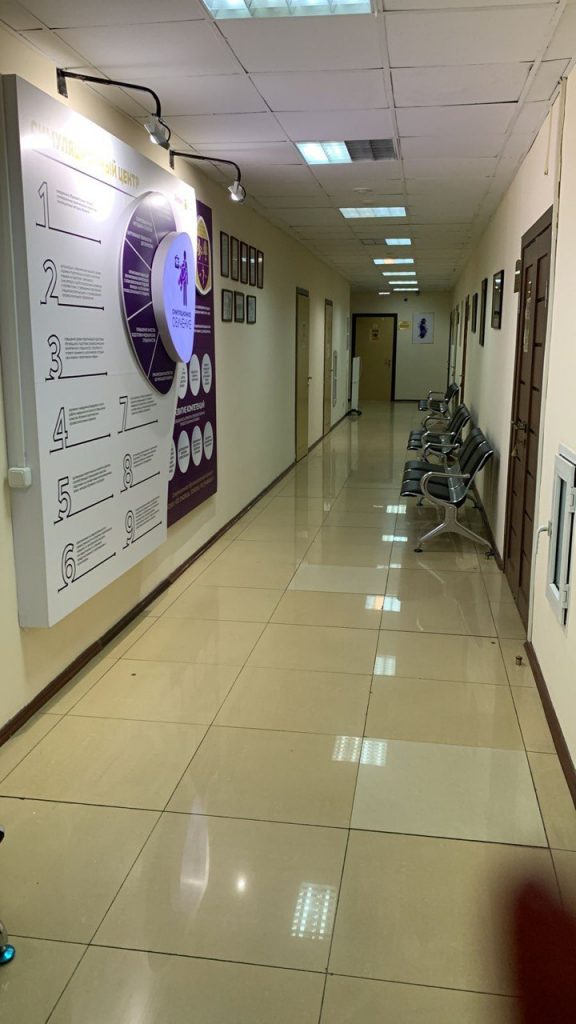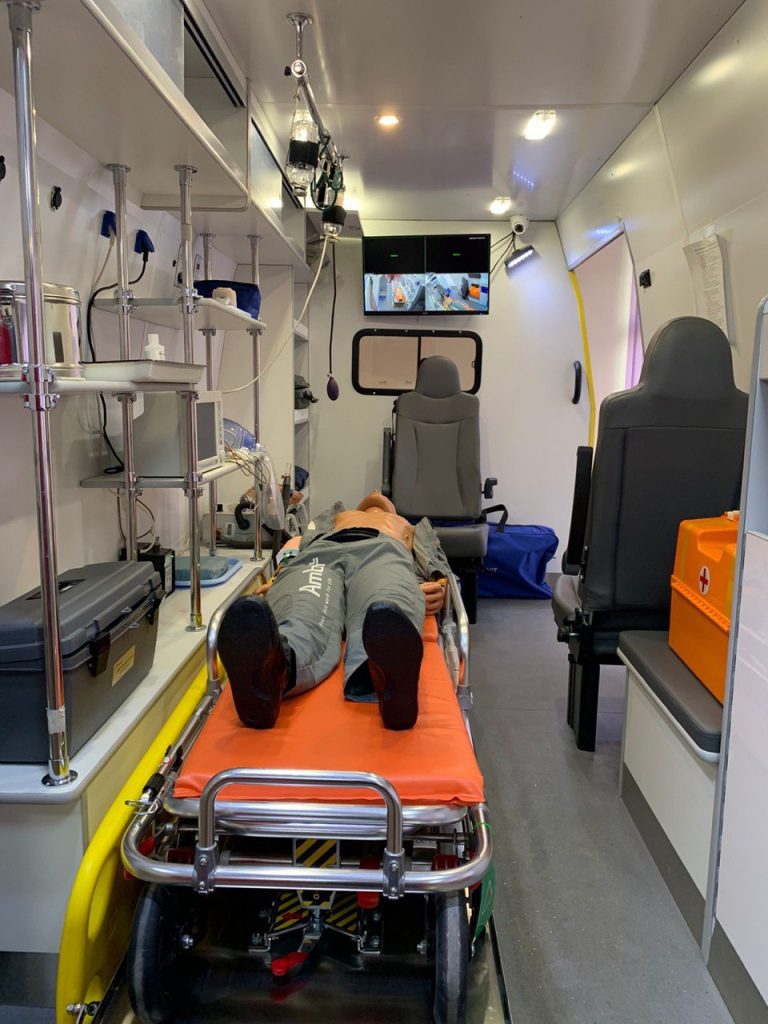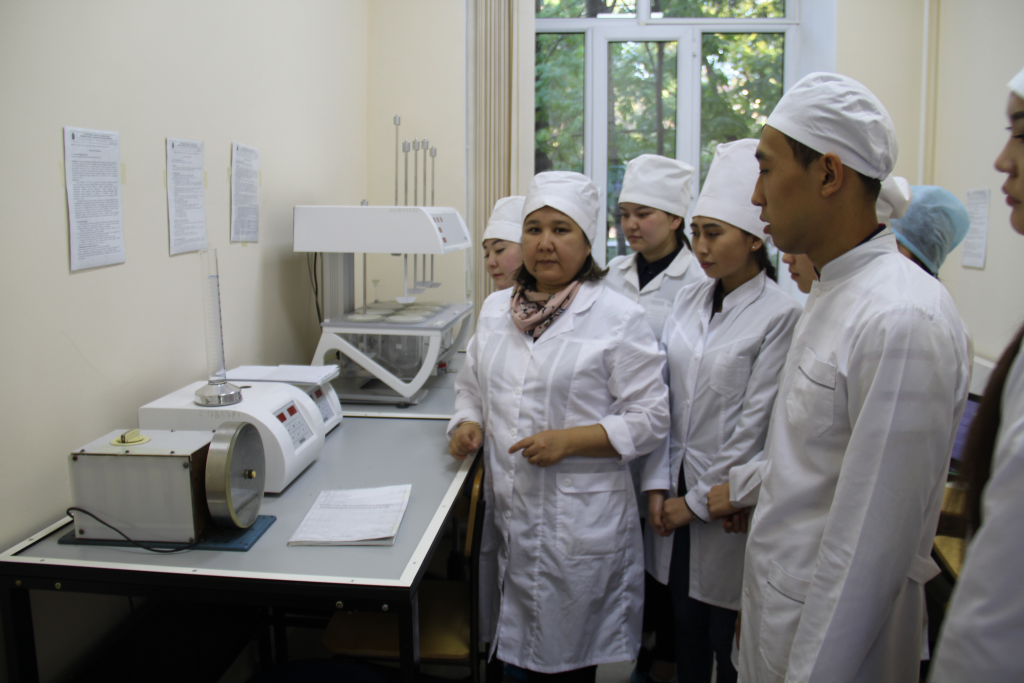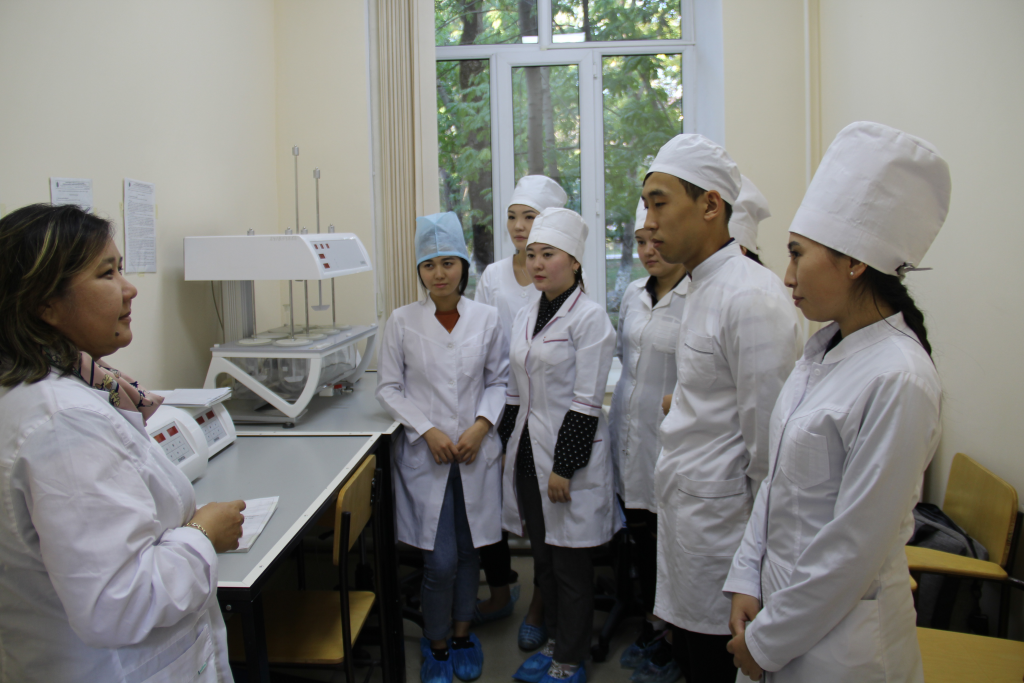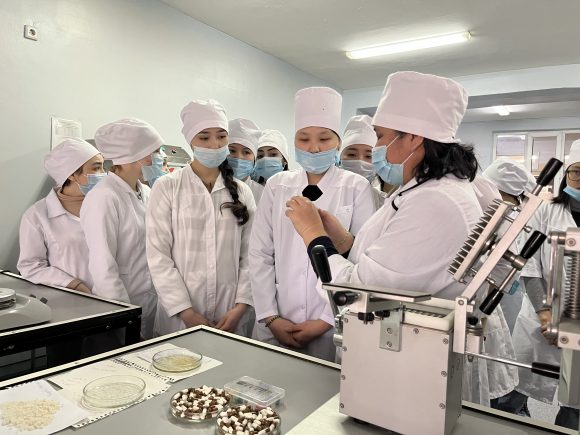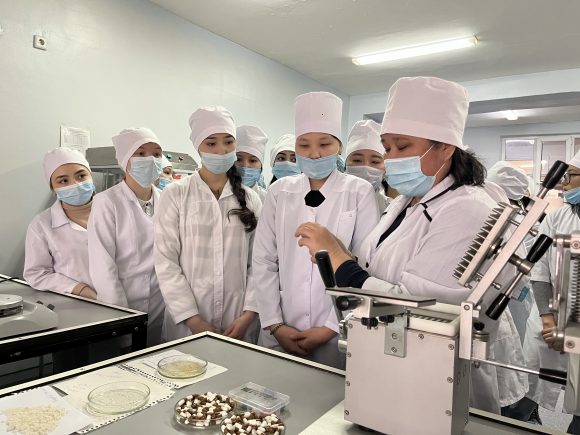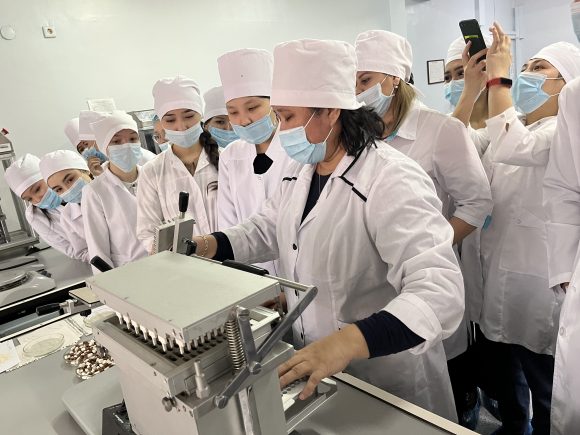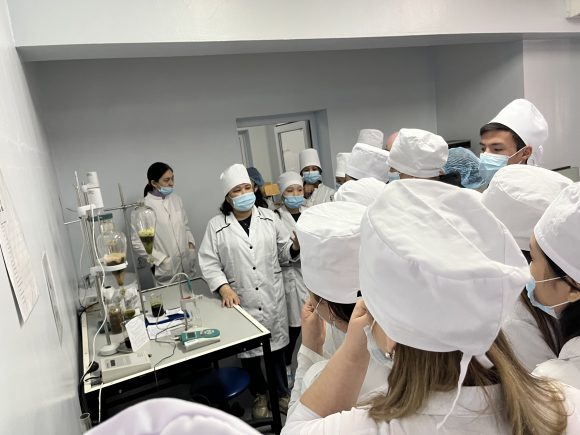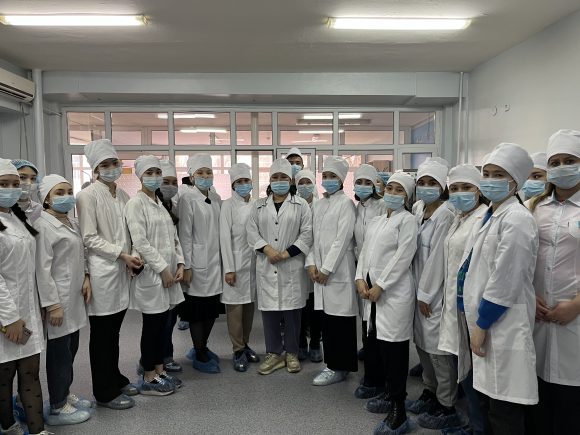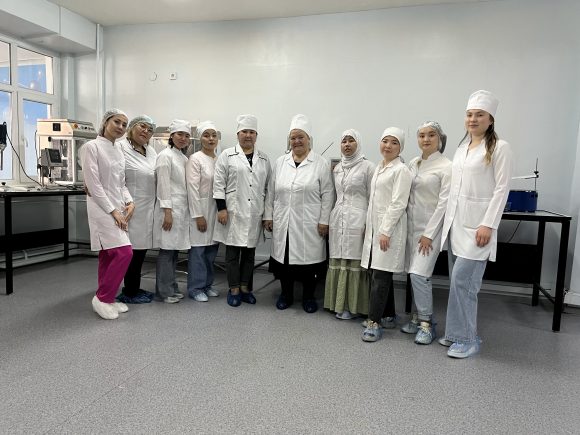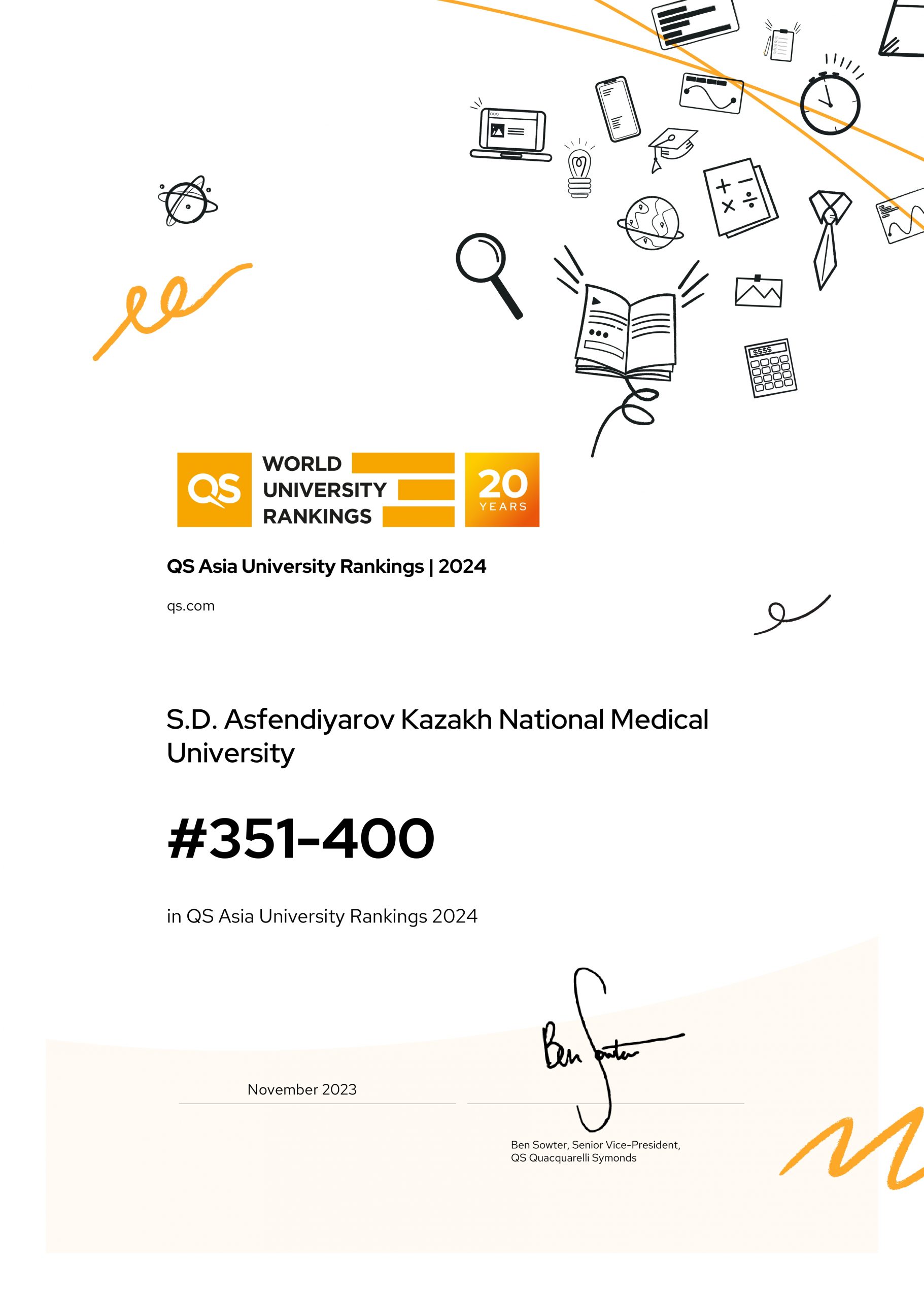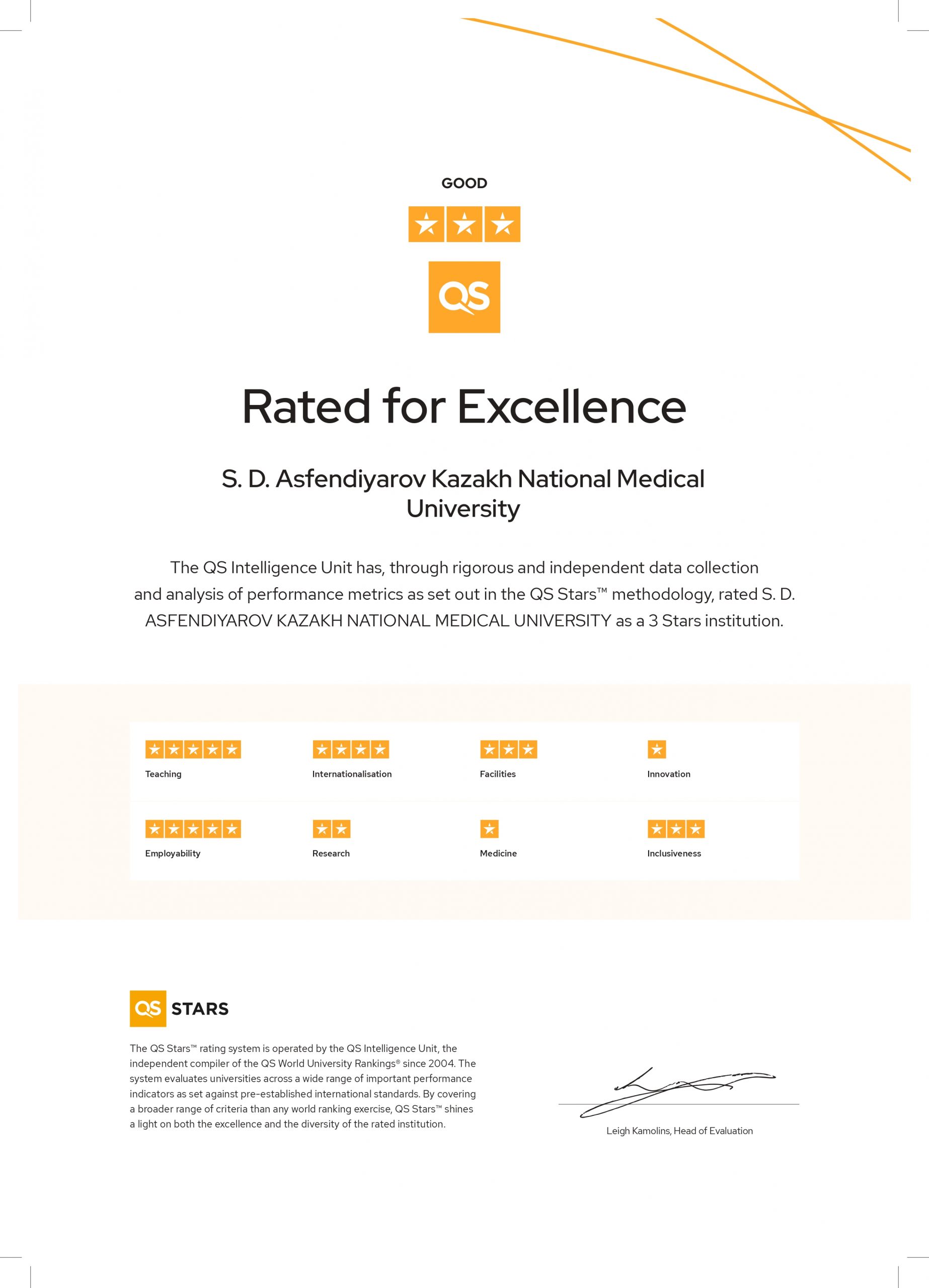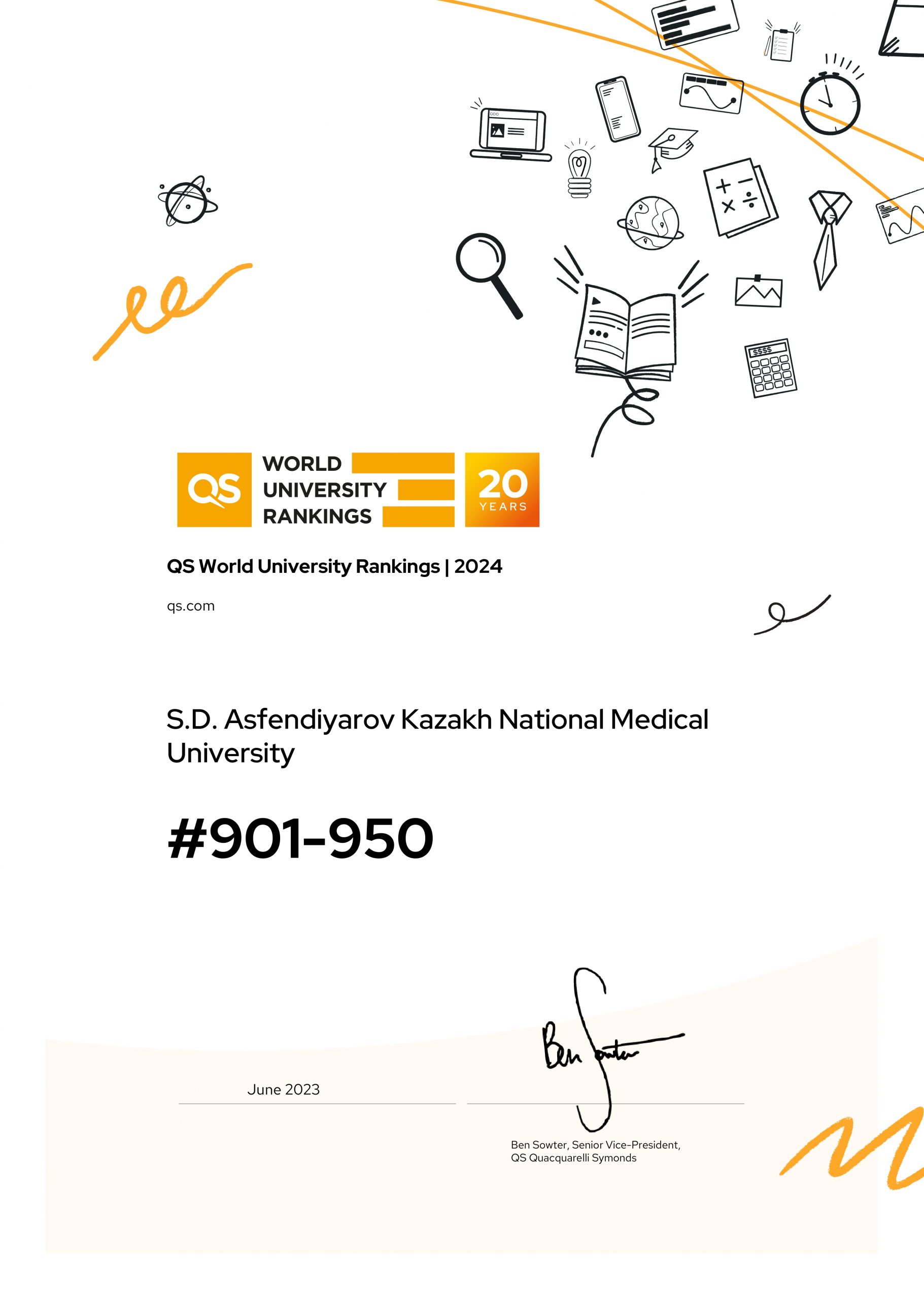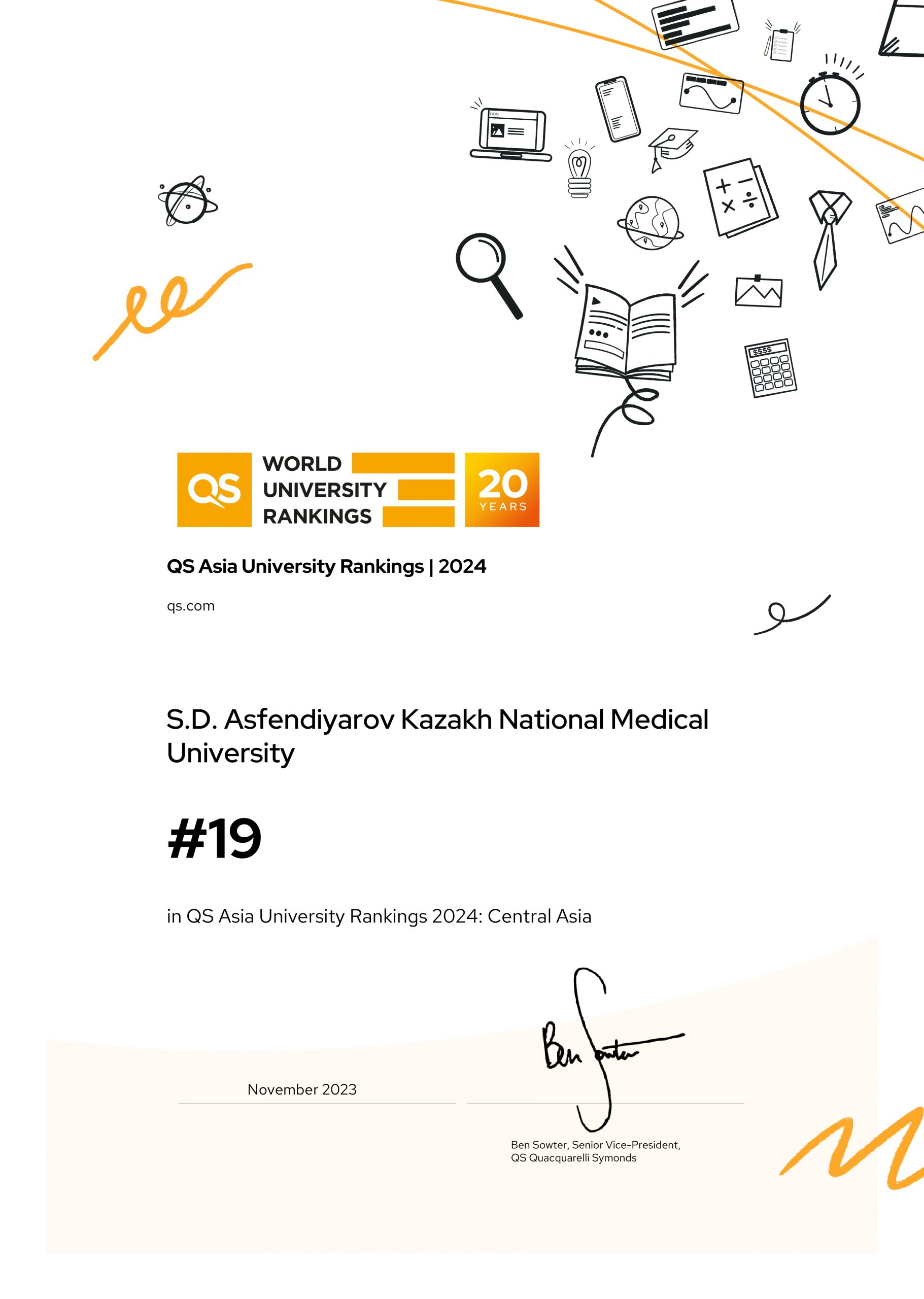About SC
The Simulation Center is an educational center that implements innovative forms of training in medical education and the target setting for practicing practical skills through the operation of simulation chambers, classes using phantoms, dummies, virtual and robotic dummies of the VI generation of realism, allowing each student independently and repeatedly perform required procedures. The Center conducts practical training for undergraduate, internship and residency.
The center is designed and equipped with advanced technologies in accordance with international standards. During training the most modern teaching tools and technologies are being used:
independent performance of tasks by students without the presence of a trainer (with remote control) in an environment that completely simulates the premises of a medical institution;
classes in a room equipped with an augmented reality system, which allows you to practice assistance actions in conditions that realistically simulate road accidents,
training on virtual simulators;
audio / video monitoring and recording of the learning process, practicing practical skills for expert independent assessment;
online broadcasting of the learning process to the debriefing rooms for detailed analysis and analysis of errors.
Задачи симуляционного Центра:
- Ensuring the integration of innovative technologies for the practical training of a young doctor in a simulation environment (dummies, models, dummies, automated virtual models, medical equipment, interactive educational computer programs, audio-video materials) focused on teaching and assessing clinical, laboratory and communication skills, with the involvement standardized patients;
- Compliance with the requirements of the quality management system for the implementation of the educational process, anti-corruption policy, in accordance with internal regulations and legislative acts of the Republic of Kazakhstan, in terms of combating corruption.
- Ensuring the relationship with structural divisions, the introduction of educational innovative technologies for teaching clinical disciplines of the medical field for the implementation of the educational process;
- Training in the field of training certified emergency professionals that meet international standards.
- Study and analysis of world experience in the field of innovative medicine, development of proposals for the implementation and optimization of simulation training, practical research on the possibility of introducing WET LAB into the educational process;
Interaction with the academic department on the organization and conduct of certification by the OSСE method (objective structured clinical examination) among students, interns, doctors of residents.
Контакты
Simulation Center
Shevchenko str., 100
Contact: +7(727)338-70-90 (вн.7237)
Whatsapp number: +7 771-457-27-10
https://www.instagram.com/simulation_center/
https://www.youtube.com/channel/UCL3IQfuxHrJ93vWn3kvntzg
Employees
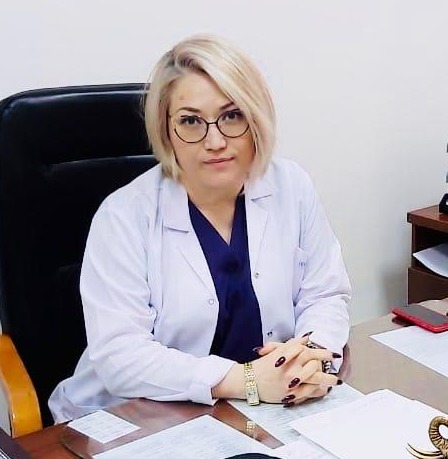
Head of the Simulation center
Talkimbayeva Nailya Anuarovna, doctor of medical sciences, anesthetist – resuscitator
Contact number: +7(727)338-70-90 (ext.7237)
Email: [email protected]
Head of the service – Tasybek Aydin
Contact number: +7(727)338-70-90 (ext.7167)
Email: [email protected]
Chief specialist of the Simulation center – Kolbayev Meierbek
Master of medical sciences, general practical doctor
Email: [email protected]
Trainer of the Simulation center, – Kapsalyamova Elmira Nikolaevna
Candidate of pharmaceutical sciences
Email: [email protected]
Trainer of the Simulation center – Kurmanaeva Bayan Mukhamedovna
Candidate of Medical Sciences, anesthesiologist-reanimatologist
Email: [email protected]
Trainer of the Simulation center – Mizonova Svetlana Nikolaevna
Specialist of psychology and pedagogy
Email: [email protected]
Trainer of the Simulation center – Raganina Karlygash
Candidate of pharmaceutical sciences
Email: [email protected]
Trainer of the Simulation center – Kanybekova Aisulu
Doctor pediatrician
Email: [email protected]
Trainer of the Simulation center – Kalimbetova Tolkyn
Emergency medical doctor
Email: [email protected]
Trainer of the Simulation center – Babakhan Serzhan
General doctor
Email: [email protected]
Trainer of the Simulation center – Mukhanova Assel
General doctor
Email: [email protected]
Trainer of the Simulation center – Koskosidi Nikoletta
Resident Endocrinologist
Email: [email protected]
Trainer of the Simulation center – Zhamykhankyzy Akerke
General doctor
Email: [email protected]
Trainer of the Simulation center – Almaganbetova Ainur
Pediatrician
Email: [email protected]
Trainer of the Simulation center – Dosayev Azamat
General doctor
Email: [email protected]
Trainer of the Simulation center – Istaeva Klara
General doctor
Email: [email protected]
Trainer of the Simulation center – Urazbekova Asel
General doctor
Email: [email protected]
Older methodist of the Simulation center – Zhakupova Meruert
Email: [email protected]
Older methodist of the Simulation center – Kishkasheva Gulnaz
Email: [email protected]
Methodist of the Simulation center – Kabylbekova Saule
Contact number: +7(727)338-70-90 (ext.7277)
Email: [email protected]
Methodist of the Simulation center – Bibaeva Aziza
Email: [email protected]
Methodist of the Simulation center – Dzhusupova Bolsyn
Email: [email protected]
Methodist of the Simulation center – Kendirbai Arystan
Email: [email protected]
Methodist of the Simulation center – Kasymbek Gulsezim
Email: [email protected]
Technician of the Simulation center – Aliev Iliyas
Email: [email protected]
Service Engineer of the Simulation center – Tuleubayev Kirill
Email: [email protected]
Laboratory assistant – Dogomanova Toleu Ermekbaevna
Email: [email protected]
Gallery
Behavior rules
Attention! On the territory of the Simulation Center there is audio-video surveillance!
For successful completion of training, THE STUDENT MUST:
- Strictly comply with the Internal Rules and the Code of Honor of a student of KazNMU named after D. Asfendiyarov;
- comply with the Rules of academic honesty at all stages of the educational process;
- know the rules of asepsis and antiseptics, indications, contraindications to manipulations on the topic of the lesson, as well as the algorithms for their implementation;
- perform manipulations on the simulator in accordance with the algorithms for their Violation of the methodology can spoil the simulator, and in real life, improper manipulation can cause pain and / or injury to the patient.
- having performed the manipulation, to bring the workplace to its original position.
- when working with dummies, do not use pens, pencils, markers, Take care of the property of the Simulation Center.
- the student is responsible for the safety and effective use of the training equipment entrusted to
- arrive at the lesson strictly according to the schedule 10 minutes before the
- attend practical classes according to the schedule;
- during the work to keep order, cleanliness and leave the room only with the permission of the teacher (trainer), observe the set break time.
- be prepared to practical exercises;
- actively participate in the educational process (to study theoretical material, perform individual tasks, participate in small groups, discussions, etc.).
- comply with safety regulations, asepsis, antiseptics, anti-epidemic regimen;
- comply with the rules of medical ethics and deontology in relation to all participants in the educational process (teachers, staff of the simulation center, standardized patients, students).
- openly discuss conflict situations in the group, with the participation of employees of the simulation
- attend the exam in accordance with the
Dress Code Requirements
The student is required to:
- adhere to a business style of clothing;
- have a neat hairstyle, short-cropped nails; (for girls: bright makeup and bright nail polish are not acceptable; young men should be shaved smoothly);
- have a clean, ironed medical gown / surgical suit, cap / hat, medical mask, and replaceable
During practical exercises, students are prohibited from the final control:
- to use mobile devices / gadgets;
- to use the laptop for other purposes;
- to leave the simulation center in medical clothing and replaceable
- it is forbidden to taste any reagents and expendable materials, drink, eat or smoke in the simulation
Penalties for the above
- in case of a single violation of the discipline policy, the student receives a verbal warning from the employees of the simulation
- with repeated violations of discipline policy, the student is required to provide an explanatory addressed to the head of the simulation
- in case of systematic violation of discipline policy, the head of the simulation center submits the corresponding report to the dean’s office.
- for each outstanding task / absence in the class, the student receives “0”
- Lose the key to the locker of the simulation center, the responsibility lies with the student!
- In case of damage to the property of the simulation center for students, the responsibility lies with the supervising teacher!
СЦ по фармации
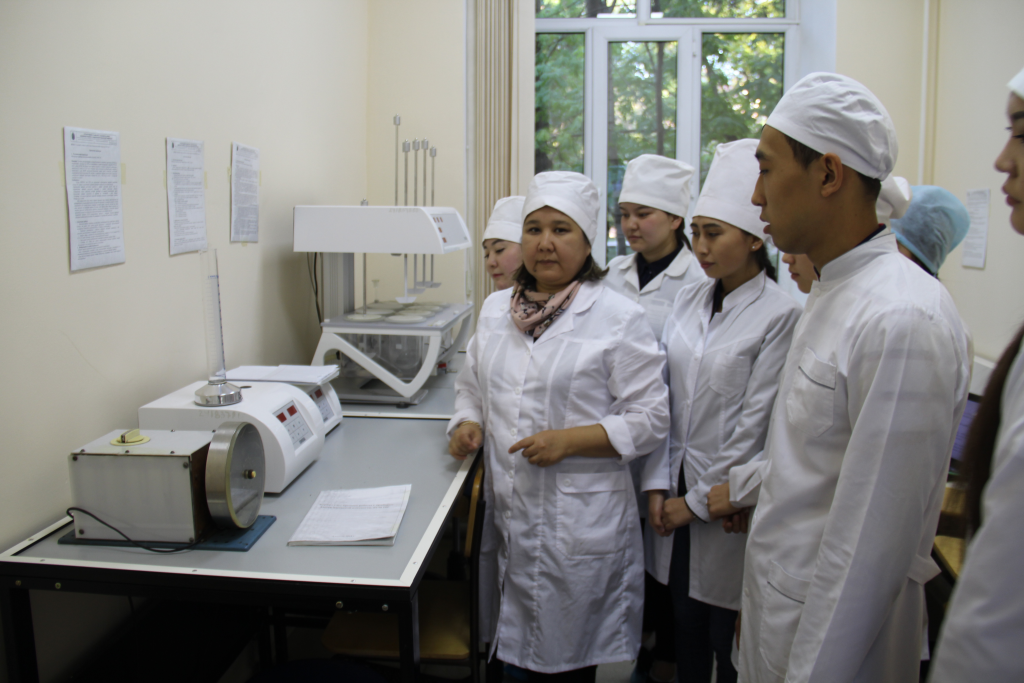
For meeting the requirements of the modern educational standards, according to decision of Rectorate and Asfendiyarov KazNMU Academic Council, on September 16th, 2011, the Center of practical skills by Pharmacy specialty was established. Here each student can master and improve all the basic practical skills for his future profession.
The main mission of the Center is the equipment and material support for the development and training of students’ practical skills of the future profession.
Purpose:
To make up practical competence of the KazNMU graduating pharmacists at different training levels by opening up conditions for the phased and interconnected development of practical skills from the 1st year to the end of training.
Tasks:
- To study the list of practical skills of «Pharmacy» and «TPhP» specialties
- Create skills training modules
- development of technological regulations for the medicinal product production
- producing dosage forms in pilot industrial conditions
- quality control of the received medicines
- Conducting seminars with teaching staff, preparation of teaching and examination materials
Preparation for the IHA (undergraduate)
The work of the Center is based on the following principles:
- individualization of training on the basis of the use by each student of the faculty using complex of teaching aids, consisting of practical skills on pharmaceutical production equipment
- the use of end-to-end training programs for teaching practical skills, this implies that the student having basic level of technology for performing practical skills on each following module can master more advanced skills
- continuous improvement of the quality of informational, methodological? material and technical support of the educational process.
Dummies and mannequin catalog of SC
Algorithm
«External obstetric examination (according to Leopold-Levitsky)»
Special gynecological examinatio1
Special gynecological examination
Taking a smear for oncocytology
Лор
«Examination of ENT organs using a frontal reflector»
«Stopping nosebleeds (anterior nasal tamponade) »
хирургия 1
«Emergency treatment for obstruction of the upper airway (cricothyrotomy)»
«First aid of foreign body obstruction of the upper airway. Heimlich maneuver»
хирургия 2
алгоритм осмотр новорожденного
Осмотр ЛОР-органов
Остановка носового кровотечения (задняя тампонада носа)
Остановка носового кровотечения (передняя тампонада носа)
Осмотр ЛОР-органов при помощи лобного рефлектора
педиатрия
Физикальный осмотр пациента (ССС)
хирургия 1
хирургия 2


